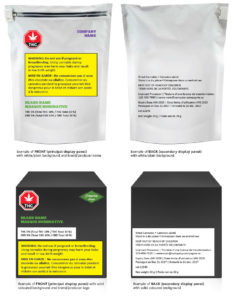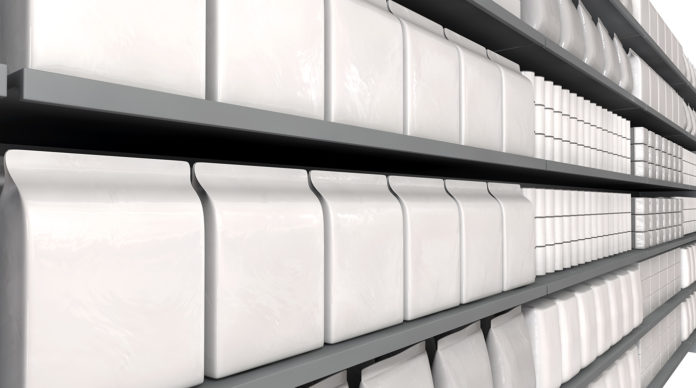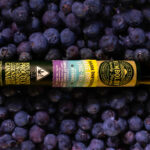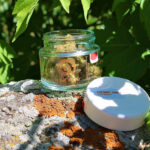TORONTO–When cannabis legalization in Canada was implemented on October 17, federal regulations for the industry were in place, even as Canadian provinces are currently developing regional industry regulations and policies.
In regards to branding of cannabis products, strict government restrictions on promotional materials require Canadian cannabis to be sold in generic packaging and specifically prohibit promotions that feature “a way of life such as one that includes glamour, recreation, excitement, vitality, risk or daring.”
“I was speaking on panels a couple weeks ago and I brought this up. I said Canada doesn’t want you to have any branding at all–and we’re all branding people [on the panel]. For us, it’s unfathomable that they’re requiring this,” said California-based Hippo Packaging’s co-founder Kary Radestock.
“They’re getting a lot of pushback but [branding] has gotta be very, very understated; it can only be two-color. It can be on-brand but it’s not supposed to be made to be attractive to the consumer, and that just goes against everything that every single packager wants. So, it’s kind of crazy that way,” Radestock added.

The restrictions are motivated by a “noble” logic, KushCo Holdings, Inc. co-founder and CEO Nick Kovacevich wrote for Forbes, but may hurt Canadian producers in the long run–especially if the U.S. were to legalize and enter the global legal market for export and trade. In legal U.S. states, though restrictions vary, leading producers already have long-range strategies for establishing brands that they’ll bring with them, to the free market.
KushCo Holdings is parent company for Kush Supply Co., a leading manufacturer of cannabis-related packaging solutions in the U.S. In his Forbes post, Kovacevich pointed out the difficulties that would result for Canadian cannabis consumers and producers because of packaging restrictions:
“New customers, who may benefit from using cannabis to treat pain or anxiety, will have a tough time navigating the product landscape… New users will have to do some research and experimenting to figure out which strains might provide their desired outcomes,” Kovacevich wrote.
“The rules… make it difficult for entrepreneurs who are hoping to build profitable cannabis businesses in Canada. By enforcing policies that essentially make all packaging look the same, Canada is taking away companies’ ability to market themselves and compete with one another,” he added. “Cannabis is being treated like a commodity. The almost laser-like focus on flower also means that companies can’t be as creative as they might like in coming up with new ideas for cannabis delivery such as wines and different kinds of edibles.”
President and general counsel of Ottawa-based cannabis investment firm (formerly known as) CannaRoyalty Corp. Afzal Hasan echoed Kovacevich’s concerns the day after Canadian recreational legalization, going so far as to say that while Canada is currently the largest legal cannabis market in the world, it wouldn’t remain that way for long without changes to branding restrictions. CannaRoyalty Corp. has recently rebranded as Origin House.
“The people that for whatever foolish reason thought Canada was going to dominate the world of cannabis, they need to disabuse themselves of that notion because it was never founded on any reality,” Hasan frankly told Bloomberg.com in an interview. Origin House, who have active interests in the California market, had plans to bring some 50 brands to Canada next year when vaping and edible products become legal.
Canadian cannabis brand Tweed was featured in international headlines when their location in Newfoundland was the first to make a recreational cannabis sale, minutes after midnight on October 17, guaranteeing them a mention in Canadian cannabis history.
The brand was also profiled the same day by online outlet Quartz, for their strategy to leverage “brand-preference branding,” which is allowed under Canadian regulations. Simply put, the brand is allowed to promote its own image but not its cannabis products, while still complying with restrictions for imaging and packaging.
As a subsidiary of Canada’s largest cannabis producer Canopy Growth (with the world’s largest cannabis grow facility, located in Vancouver B.C.), the Tweed retail store chain was established with aggressive expansion into multiple provinces including Manitoba, Quebec, New Brunswick, Newfoundland, and Prince Edward Island.
The store chain’s approach to promotion complies with government restrictions; Quartz described billboard advertisements that simple read, “Hi,” with Tweed’s distinctive font logo, simplified messaging, and social media links. They also offer consumers a range of logoed apparel, which converts fans into walking billboards for the brand.
With its Tweed Collective, the company’s social responsibility project has pledged $20 million (CAD) through 2022, dedicated to “finding, funding, and fostering ideas that energize neighbourhoods, feed culture, and leave lasting impacts on Canadian communities.” Tweed also has sponsored community events, and even collaborated with Mothers Against Drunk Driving-Canada on a national campaign to raise awareness about impaired driving.
A partnership with recycling company TerraCycle allows Tweed customers to recycle their used product packaging, with bins in Tweed locations where discards can be deposited for processing.
At Tweed HQ, a former Hershey’s chocolate factory that has been resurrected as part of the Tweed Visitors Center, consumers and cannabis tourists can go and get a look at a real, working cannabis production facility, as well as indulge in chocolates produced at the location. The chocolates are not infused with any cannabis-based ingredients for now, Tweed said, because edibles aren’t legal in Canada until 2019.
But when they are legal, Tweed will be ready. Until then, factory visitors can get acquainted with Tweed while sipping coffee in the factory Study area or shop curated products in the factory’s gift shop.












